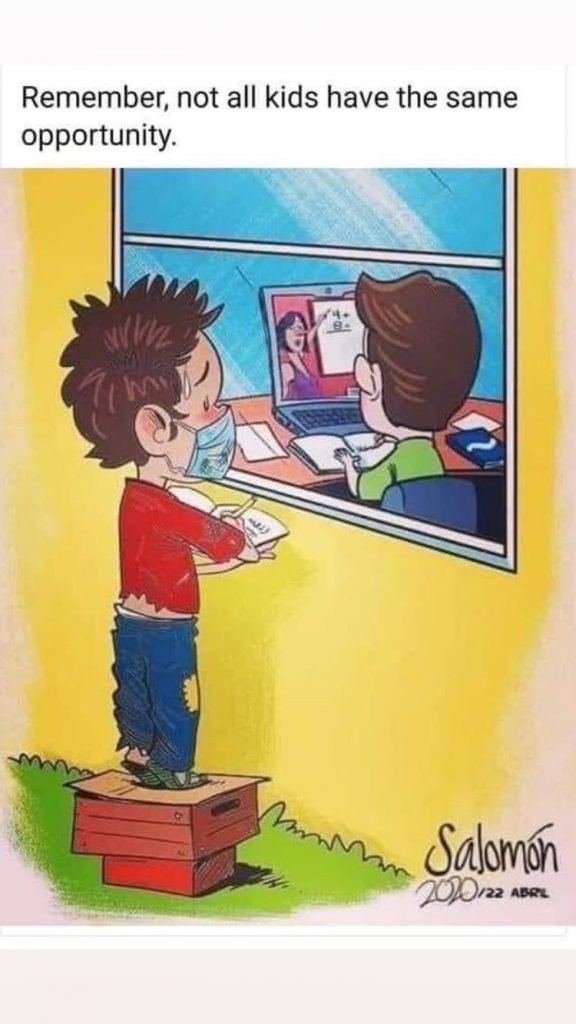Pandemic Privilege
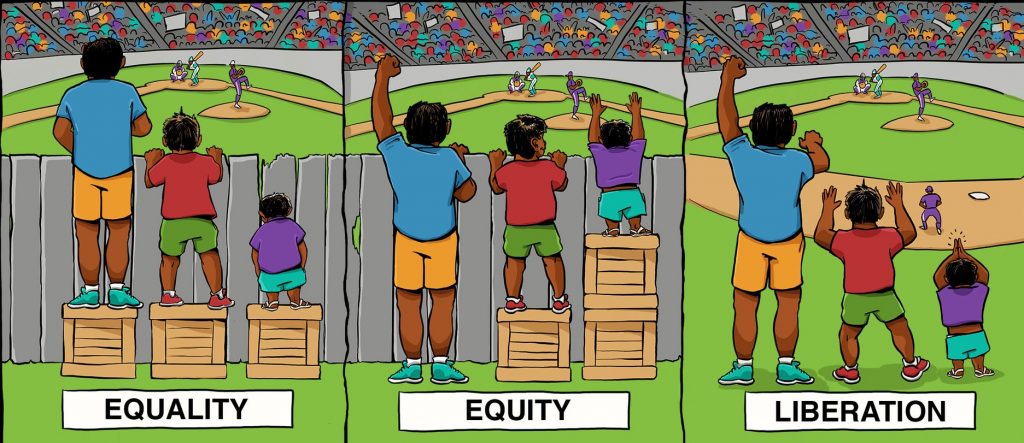
Many of us have seen this image before. The illustration of the difference between equality and equity. If you haven’t seen this image, here’s a brief explanation.
Equality: treating everyone the same, and assuming everyone benefits from the same treatment and supports.
Equity: individuals need different supports in order to receive equal access.
Liberation (justice): All three can see the game without supports because causes of inequities were addressed.
Obviously in reality, it isn’t as easy as taking away a fence. I do want to note that the metaphor isn’t perfect, as height isn’t the real problem, it’s the context around them. For some, the fence may be lower, or higher, to illustrate the number or difficulty of obstacles they may face. The images below, from Cultural Organizing, are a more accurate representation of the concept. However, I include them both in case one makes more sense than another.
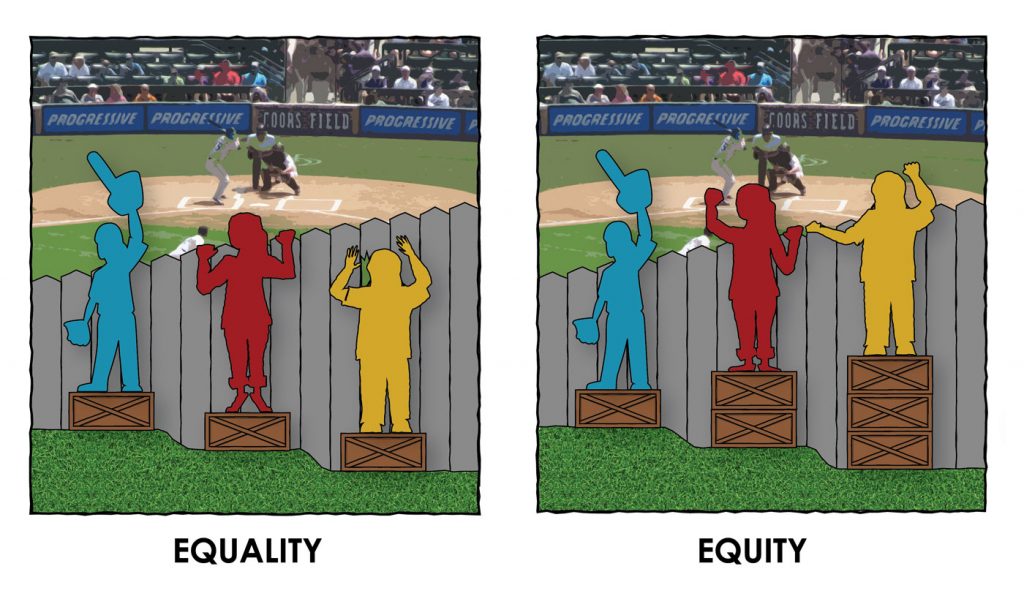
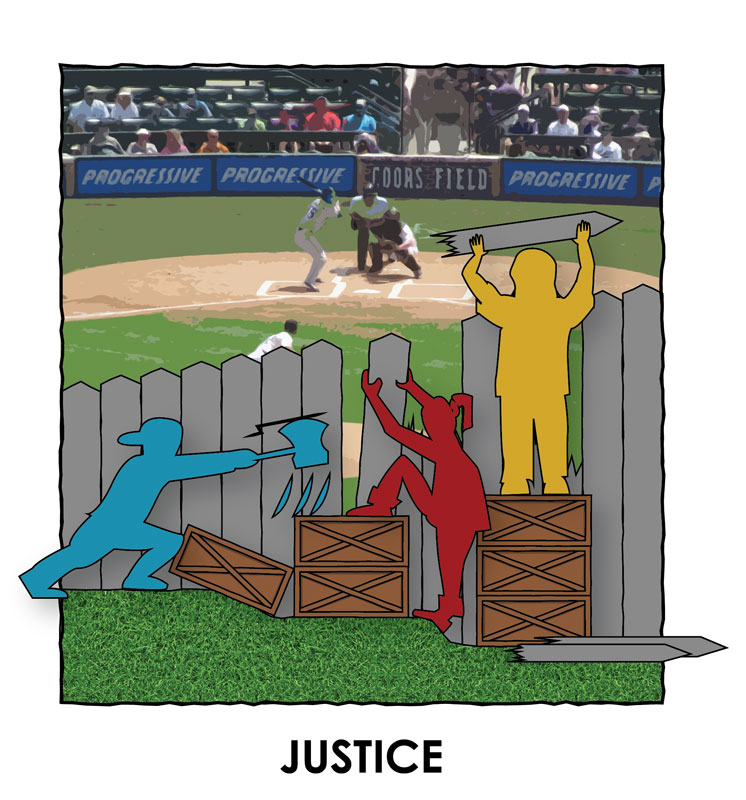
Why is this Relevant?
So what does this have to do with the pandemic? And what is pandemic privilege? Let’s break it down into parts. Privilege is a certain right or advantage a person may have based on an aspect of their identity. One example is education privilege. Many children grow up knowing that college is expected of them, and is something that will happen regardless of costs. For others, college could not be a reality. Check out my privilege gallery to learn about specific types of privilege.
Many people have said that this virus is a uniter, that we are all in this together, all in the same boat. Yes, we are all in quarantine. Yes, we all are suffering losses in different ways. Yes, we all want it to be over. We are in the same storm, but no, we are not all in the same boat. I read a post on facebook that illustrated the privilege of pandemic well. It goes along with classism and class privilege.
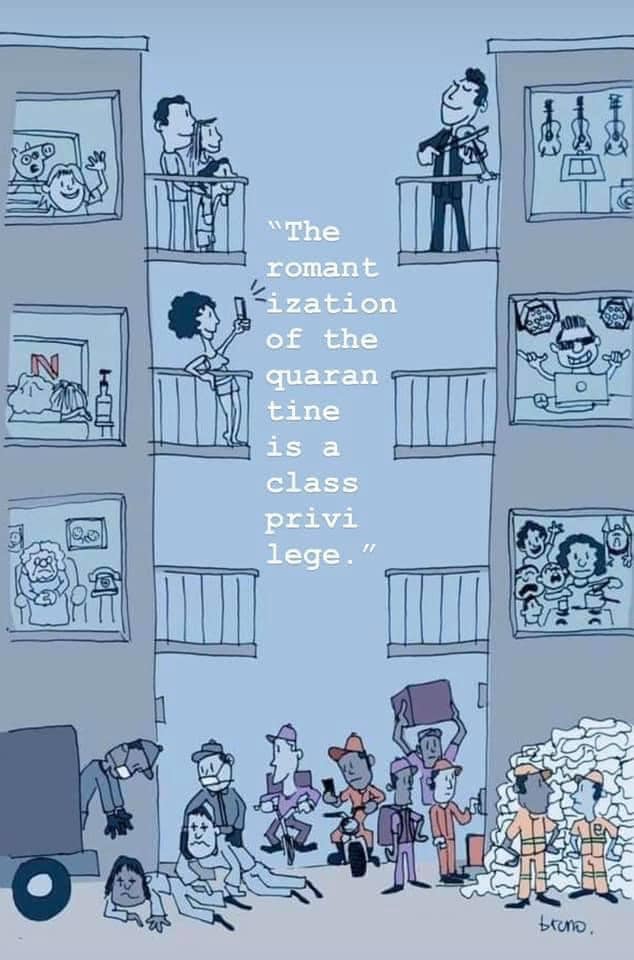
What Differentiates Us?
The privilege of pandemic goes along with classism and class privilege. Classism.org defines classism as: Classism is when someone is treated differently—better or worse—because of their class (or perceived class). Classism is similar in many ways to racism, sexism, heterosexism and other forms of oppression. Classism appears individually through attitudes and behaviors, institutionally through policies and practices, and culturally through norms and values. Like other forms of oppression and prejudice, it is the tendency to make sweeping generalizations or stereotypes about people, such as “Poor people are lazy.”
So, how does this affect people in the “working class” and/or that have a “low income”?
Depriving people of what they need to meet their basic life needs can hurt or even kill them. Classist attitudes in public policy can lead to hunger, disease, homelessness and other forms of deprivation
What Are Our Privileges?
Sometimes, people who are poor or working class internalize the society’s destructive beliefs and attitudes and turn them against themselves and others of their class. These can include feelings of inferiority to higher-class people, shame about one’s traditional class or ethnic heritage, and superior attitudes toward people lower on the class spectrum, resulting in the conviction that classist institutions, policies, and practices are fair. These are the sometimes hidden injuries and wounds of classism.
Some people see quarantine as optimal. They have the privilege to use quarantine as a time to reflect, take up new hobbies, and maybe relax a little more than they used to. All while still having enough income to afford food, bills, and another neccesities. Not everyone can afford nightly rented 3-dollars movies.
For others, it is a time of a desperate financial and/or family crisis. Some are making more many than before quarantine, while others are working more hours for less money. Many families benefited from the stimulus, but there were many that received no aid at all. Many are running out of money and need to go back to work. Many parents are spending extra hours to help their child learn in an already full workday.
More people than we know have experienced loss of loved ones. Many have experienced near death, people of all ages! And even with all this, people still are protesting the virus and not following guidelines. I saw more people than not mask-less in public today. It might not be proven to help, but is a small sacrifice to the safety of yourself and the safety of others.
What Can We Change?
Be aware of other specific privileges you may have, such as the privilege of easy access to technology in a time when our jobs and education rely on it. There are some jobs and school districts that supply technology, but that comes with working for a wealthier company. People that work for those companies have to have a good education, which comes at a high price. All of those opportunities require privilege. People that attend college have costly student loans and maybe rely on school or public library computers to access the internet. Those are now closed. The mere transition to completely online work and schooling assumes that everyone can access it, which is a privilege many do not have. These financial challenges could be amplified by aspects of a person’s identity such as disability, gender, sexual orientation, race, immigration status, and many more. If I kept writing on the intersectionality, or connections of different identities with a concept, in this case, privilege , this article would be way too long. However, The Students for Sensible Drug Policy cover the topic well in an article titled “Examining Privilege and Understanding Intersectionality.”
To learn more about intersectionality itself, watch this Ted Talk by Kimberlé Crenshaw, who coined the term in 1989 when exploring the intersection between race and sex.
If you took anything from this- be kind, and respect others experience. You never know why a person is doing what they are doing. I’ve seen many instances of people judging parents for shopping with their children, when they have no childcare available for whatever the reason. Be mindful of the individual experience and do your part.
Bottom line, It is not a time to divide the people in the United States and the world more than we already are, especially because of the existing class and wealth privilege that will=, in many cases, determine survival for many people due to this virus.
If you are struggling during this time, check out my Coronavirus resources page for guidance on how you can get the help you need.
